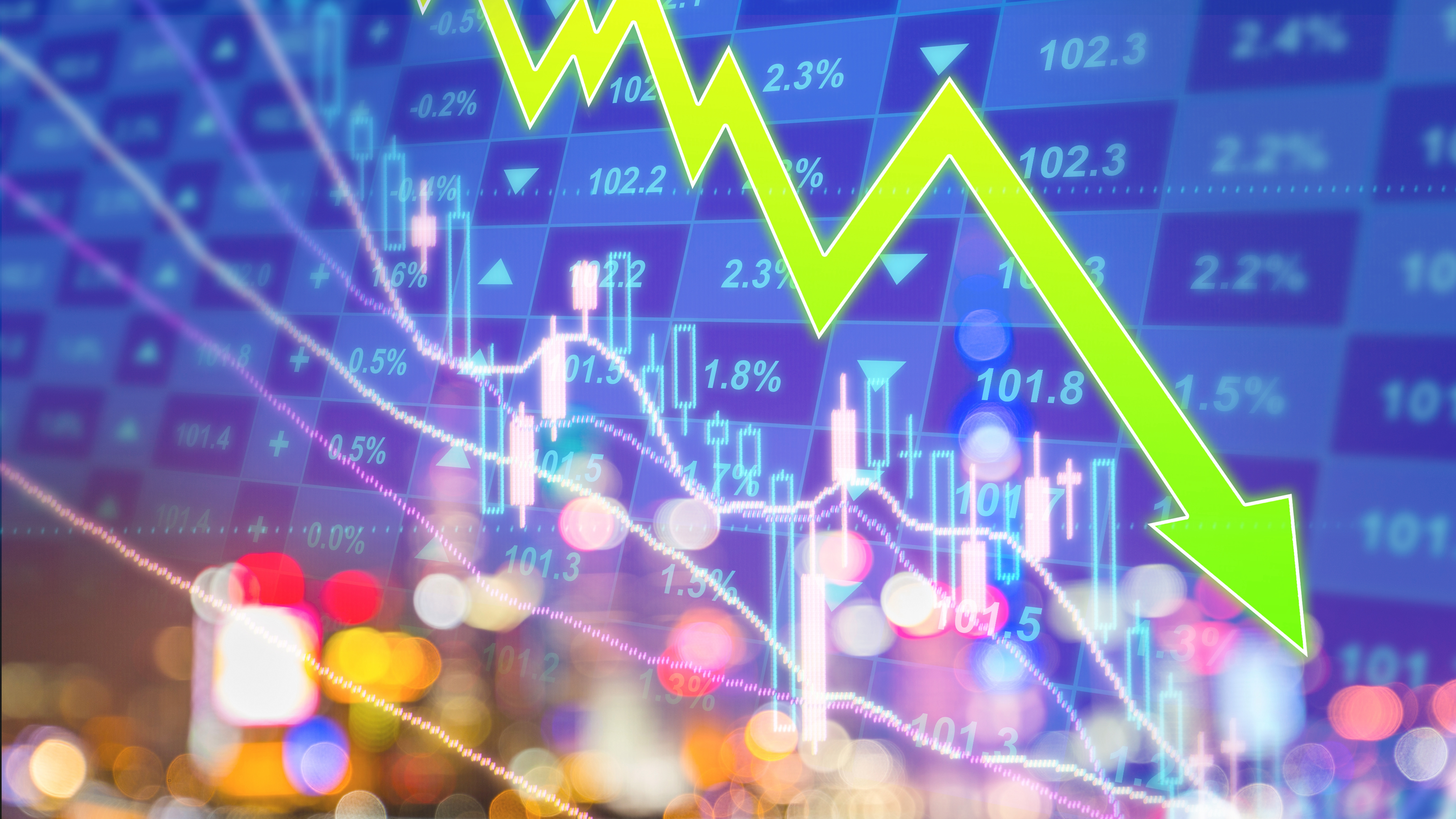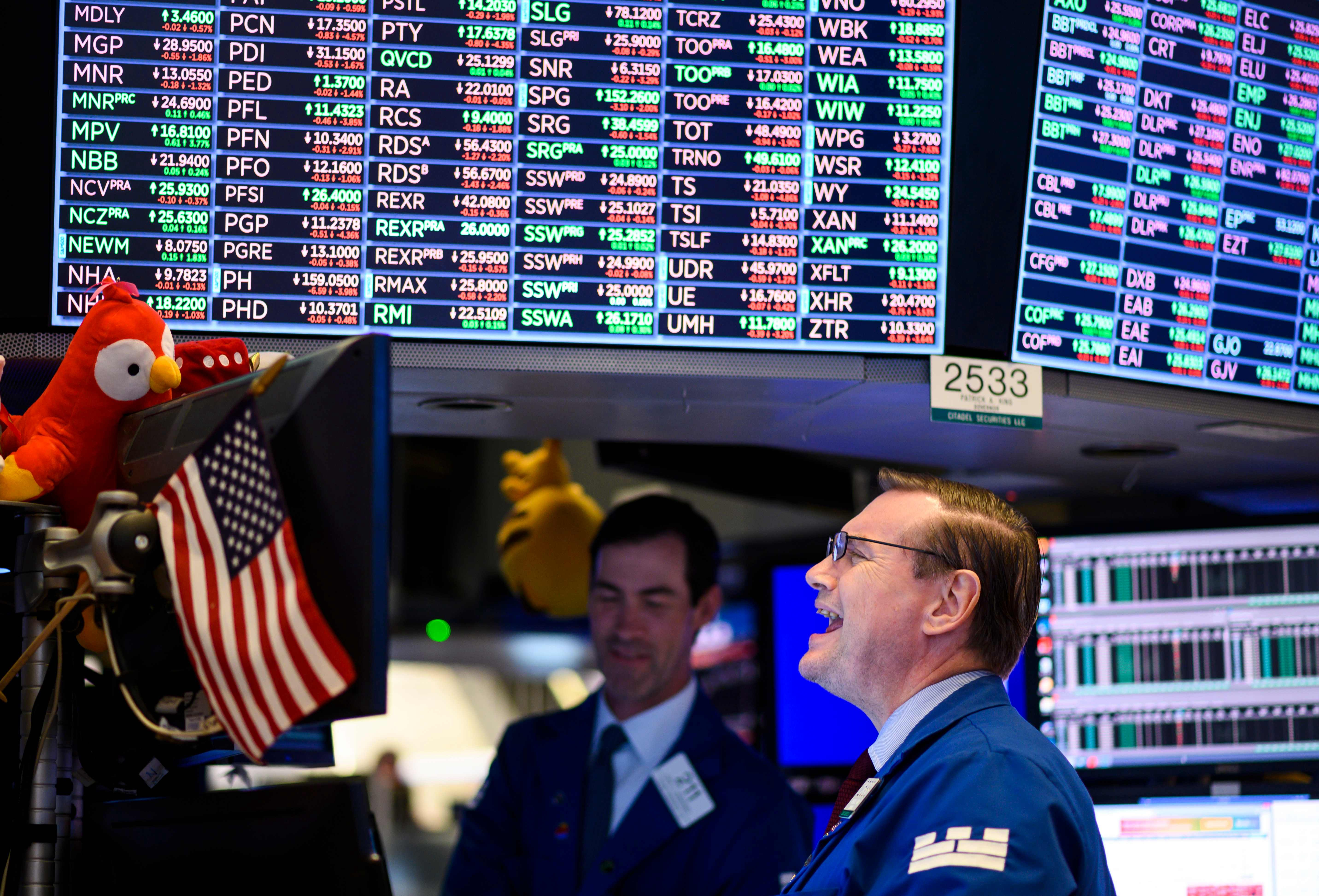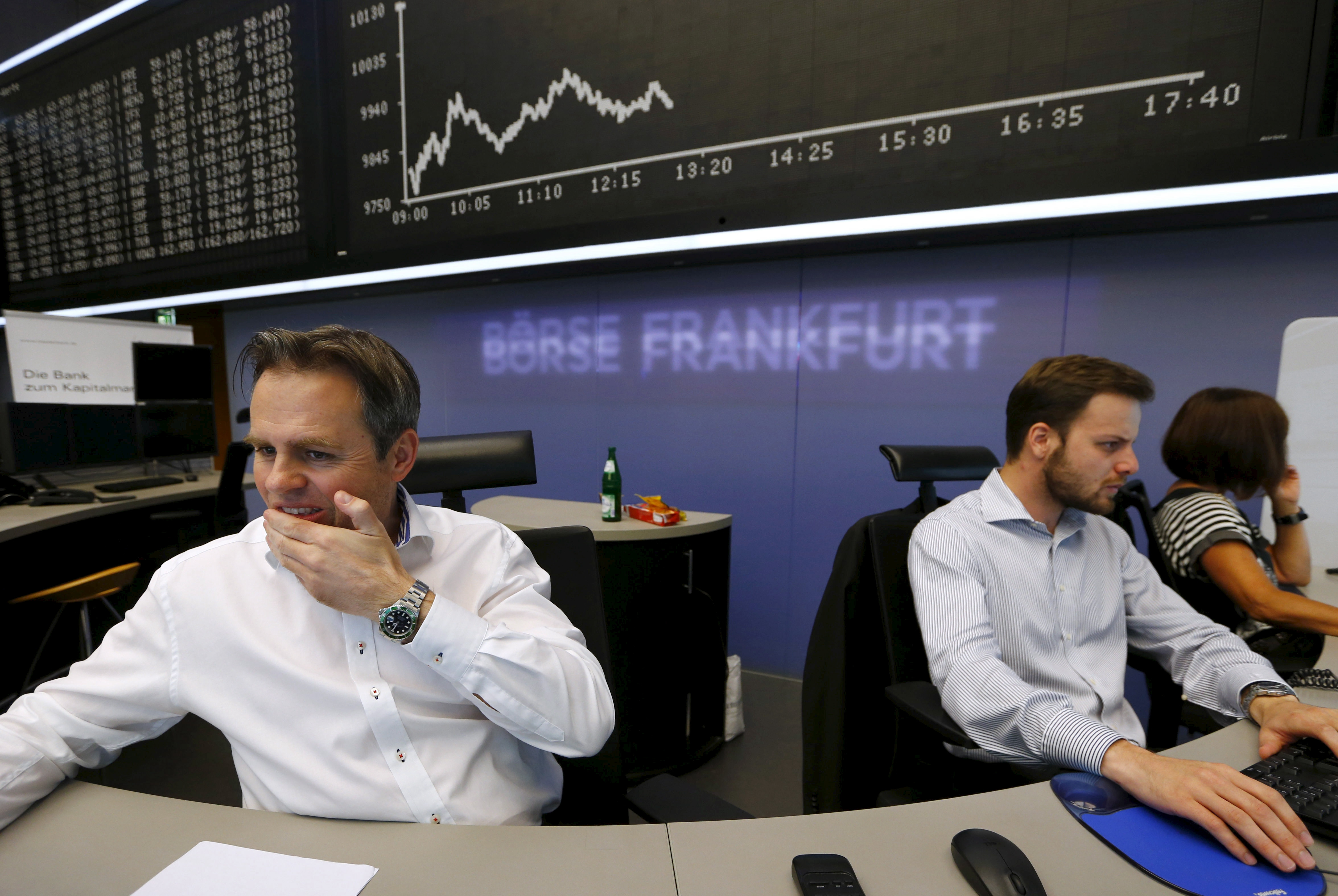
Negative bond yields have seen analysts recoil in horror in recent weeks, with major economies regarding this phenomenon, along with the inverted yield curve, as a harbinger of recession.
But for those of us who can't tell the difference between a bond and a stock, what's really going on in the global bond market, and does it mean a recession is on the horizon?

VCG Photo
Back to basics: Bonds are…?
In very simple terms, a bond is effectively an IOU, and can be issued by a government, corporation or financial institution looking to raise some money.
If an investor buys a government bond, they are effectively lending their money to the state, in return for interest and a promise to pay back the full amount at a certain point in the future.
Bonds issued by major economies are usually seen as very safe investments – a country like the U.S. or Germany is highly unlikely to default on a bond.

The inverted yield curve and negative yield phenomenon have combined to spook investors, as recession fears grow. /VCG Photo
How can bonds be negative?
2019 has seen the emergence of an unusual and growing trend – negative bond yields.
The negative yield means investors are willing to pay such a high premium to hold the bond that the eventual yield (or return) falls below zero. If an investor holds a negative yielding bond to maturity, they will lose money.
In Germany's case, where all of its government bonds are now yielding below zero, the government is effectively being paid to issue debt.
U.S. President Donald Trump has cast an envious eye over Germany's bond situation, asking earlier this month via Twitter why the American economy still needs to pay interest when Germany is "actually being paid to borrow money."
Globally, negative yielding government bonds are now worth around 15 trillion U.S. dollars. That's 25 percent of the entire bond market.
An economy on the edge
Germany's economy is not in a good place. Widely expected to enter recession in the next quarter, manufacturing, business confidence and investment have all slumped in 2019.
The latest survey by the Munich-based ifo Institute of 10,000 companies found confidence was at a low not seen since 2012 – the height of the Eurozone crisis.
How does this negativity affect bonds? The doom and gloom surrounding the German economy, as well as the wider global picture, has pushed investors to batten down the hatches and move their portfolios as far away from risk as possible.

2019 has been a difficult year for the German economy, with most sectors either in decline or suffering anemic growth. /VCG Photo
In the case of a German, European or wider global downturn, stock prices will plummet, as risk-averse investors sell their shares and buy "safer" government bonds.
Amid the frenzy which has pushed yields below zero, investors believe they will later be able to sell the bond on for a higher price, or any losses made through the negative yield will be smaller than stock market losses or by holding their assets in cash.
Several European banks are already charging interest on savings accounts – meaning you would have to pay to deposit your own cash.
What are the risks?
Firstly, this is a completely unprecedented trend – and if investors are still holding these bonds during a selloff sparked by an economic recovery or interest rate rise, their losses could be huge.
Yields and bond prices have an inverse relationship – when one goes up, the other must come down.
According to CNBC, a slight interest rate rise leading to just a two percent increase in yields on Swiss bonds would lead to 50 percent losses.
Jan Loeys of JPMorgan and Chase told Bloomberg that the growing negative yield phenomenon is "quicksand", with the potential to slowly take U.S. Treasury yields down towards zero within the next three years.
The huge influx of investment into bonds has also increased volatility – an ironic trend given that investors move to government debt to de-risk their portfolios.

The Bond Connect program has seen two trillion yuan worth of deals since being established in July 2017. /VCG Photo
Chinese debt 'best among global government bonds'
Despite yields falling to their lowest point since 2016, China's bond market remains far from the negative yields spooking Western economies.
China's 10-year sovereign bond fell to a three percent yield earlier this month, but UBS Asset Management told Bloomberg: "Chinese debt is probably the best asset now among global government bonds".
In July 2017 China launched the Bond Connect program between the Chinese mainland and Hong Kong, allowing international investors access to the mainland's interbank bond market.
According to China Daily, two trillion yuan (291.1 billion U.S. dollars) worth of bond deals have been made through the program since its establishment, with 500 billion yuan worth of Chinese bonds purchased through Bond Connect in the first six months of this year.

Copyright © 2018 CGTN. Beijing ICP prepared NO.16065310-3
Copyright © 2018 CGTN. Beijing ICP prepared NO.16065310-3